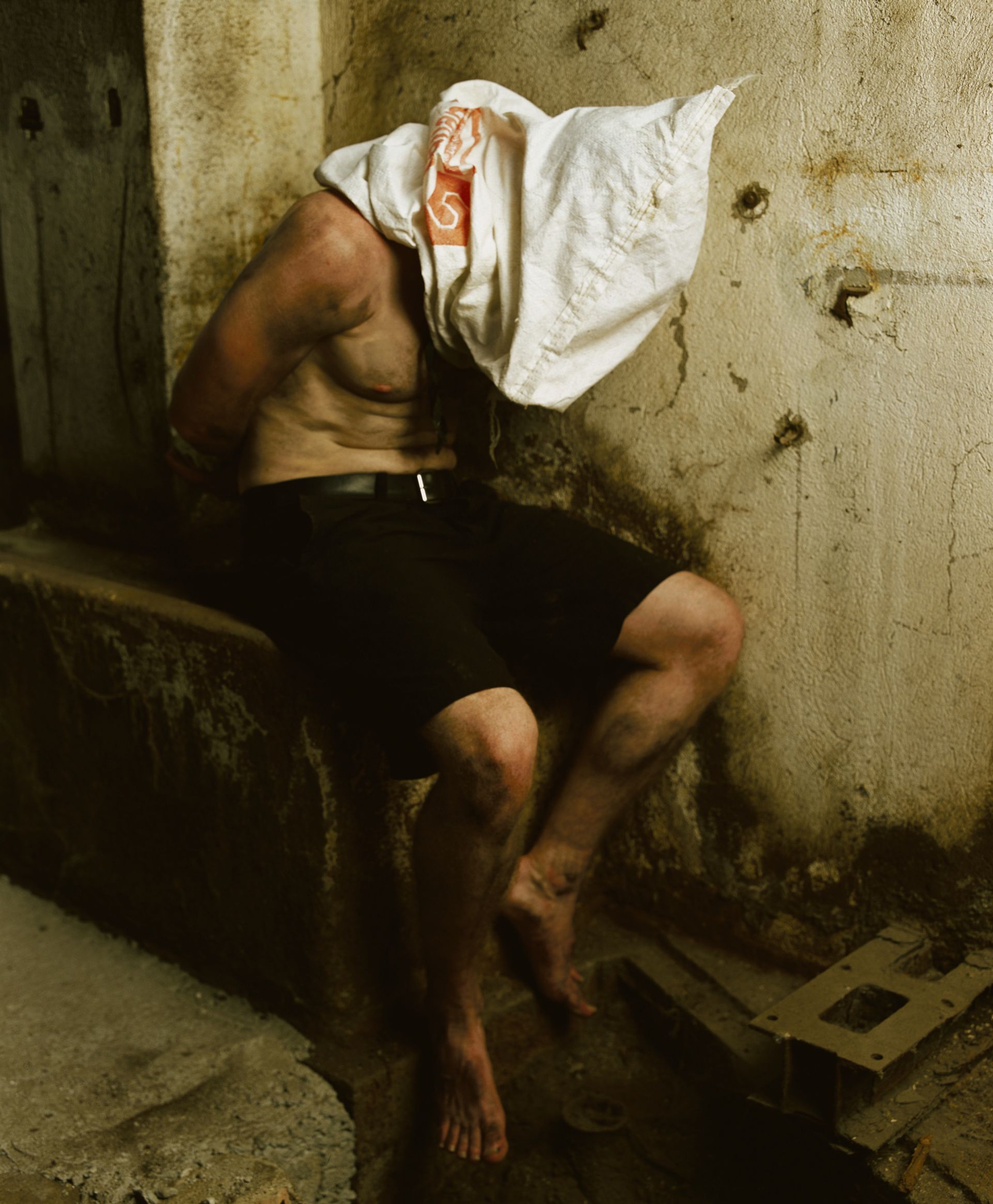There are many politically charged works at Art Basel this year—but there is nothing quite like a new series called Torture, by Andres Serrano, that is due to go on show in France next month. His disturbing images feature more than 40 volunteers being degraded and shackled, with the US artist assuming the role of torturer. The images are due to go on display at the Collection Lambert in Avignon on 4 July (until 25 September).
The series was initiated and produced by a/political, a London-based non-profit that collaborates with “socio-political” artists; Serrano’s photographs were taken at the Foundry, a space run by a/political in the south-western French town of Maubourguet.
Serrano will also unveil his portraits of the “hooded men”, a group of political prisoners who were subjected to “deep interrogation” under the British government’s internment programme in Northern Ireland in the early 1970s. For their portraits, some of the men stripped and wore hoods for the first time since their ordeal.

“A vast number of people visited the Foundry through word of mouth, including local labourers and factory workers. They offered their bodies for experimentation, almost unconditionally. It was fascinating to witness the dynamic between the torturer and tortured,” says Becky Haghpanah-Shirwan, the director of a/political.
“The scale and compositions are akin to Old Masters; Serrano monumentalises the bodies that the government doesn’t want us to see, humiliated and eroticised,” Haghpanah-Shirwan says. A selection of plates from Francisco Goya’s series The Disasters of War (1810-20), on loan from Stadtmuseum Oldenburg, in northern Germany, will also feature in the Avignon exhibition. Meanwhile, five small-scale images from Serrano’s Torture series are on show at the Royal Museums of Fine Arts of Belgium, in Brussels (until 21 August).
Discussions about the project began at Serrano’s studio in December 2014, in the week when the US Senate Select Committee on Intelligence published its report on CIA detention and interrogation. “The US government continued to block the further release of images from Abu Ghraib [the prison outside Baghdad, Iraq] as a matter of national security, and this persistent, visible censorship was the topic of global debate. It was the right time to explore torture as a reality that continues to rot the core of society,” Haghpanah-Shirwan says.


